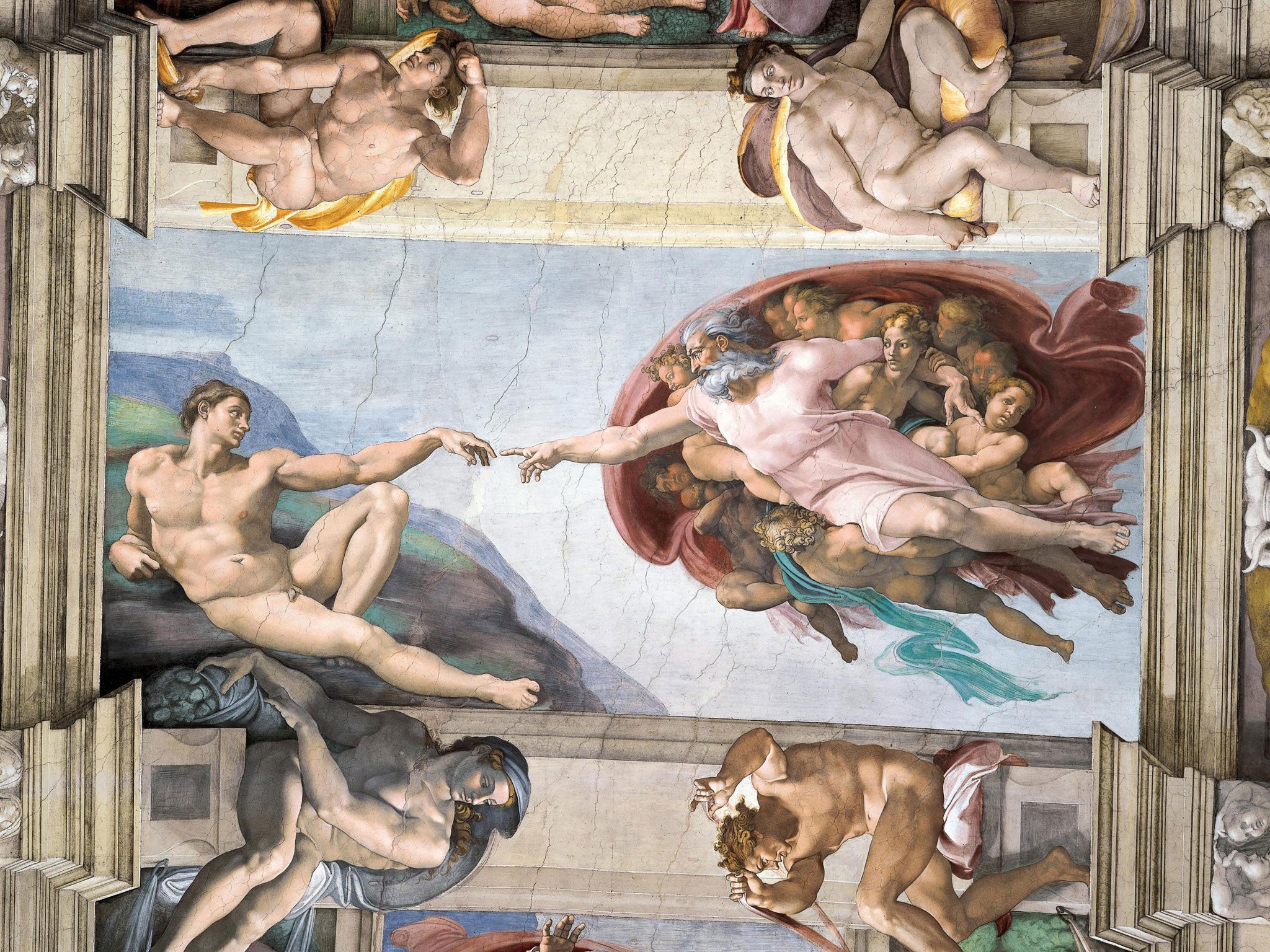Inventing the Universe: Why we can't stop talking about science, faith and God by Alister McGrath, book review
This thoughtful argument suggests faith and facts work together to reveal the world

Your support helps us to tell the story
From reproductive rights to climate change to Big Tech, The Independent is on the ground when the story is developing. Whether it's investigating the financials of Elon Musk's pro-Trump PAC or producing our latest documentary, 'The A Word', which shines a light on the American women fighting for reproductive rights, we know how important it is to parse out the facts from the messaging.
At such a critical moment in US history, we need reporters on the ground. Your donation allows us to keep sending journalists to speak to both sides of the story.
The Independent is trusted by Americans across the entire political spectrum. And unlike many other quality news outlets, we choose not to lock Americans out of our reporting and analysis with paywalls. We believe quality journalism should be available to everyone, paid for by those who can afford it.
Your support makes all the difference.Since the first half of the 19th century, when new scientific disciplines and revolutionary scientific concepts began to take shape, scientists have been eager to share their discoveries with the general public. Concepts such as evolution and the vastness of geological time challenged not only the scientific consensus but literal interpretations of the Bible, so it is not surprising that they provoked vigorous debate – and continue to do so.
Alister McGrath has written more than a dozen books exploring the relationship between the two – notably The Dawkins Delusion, a response to Richard Dawkins' The God Delusion. In this, his latest book, he engages further with the big questions that Dawkins and others have raised – including origins, the burden of proof, the meaning of life, the existence of God, and our place in the universe.
When he went to Oxford to study chemistry (he later gained a doctorate in molecular biophysics), McGrath was a committed atheist. Gradually he came to the conclusion that, although he felt no emotional need for a religion, "belief in God made a lot more sense of things than my atheism did". This book, which maps his 40-year journey of discovery and "intellectual realignment", aims to counter the prevailing notion of a conflict between science and faith by showing that, together, they offer a way of looking at the world that is "both rationally satisfying and imaginatively exciting".
McGrath's style is scholarly yet accessible and engaging, and he presents a convincing case for replacing the old "narrative of conflict", which he sees as ideologically driven, with a "narrative of enrichment" which allows us to "hold together the ideas of cosmic vastness and personal significance in a coherent whole". For McGrath, Christianity offers three main ways to add depth to scientific knowledge: it reassures us of the "coherence of reality" by opening our eyes to a half-glimpsed bigger picture; it provides answers to what Karl Popper termed "ultimate questions", such as the meaning of life and our place in a greater scheme; and it prevents the scientific narrative from collapsing into what Keats called a "dull catalogue of common things".
McGrath points out, rightly in my view, that the New Atheism (championed by writers such as Dawkins) is predicated on an ideology of scientism, which holds that science, and science alone, is able to answer life's deepest questions. A quote from McGrath's Oxford colleague and professor of logic Timothy Williamson deftly demolishes this position. McGrath also debunks the notion, popularised by physicists such as Stephen Hawking, that physical laws – which are merely descriptive, not causative – can ever provide a complete explanation of the universe.
Throughout the book McGrath is clear that he is seeking not to defend science or religion, but to explore what happens when a scientific and a Christian narrative are interwoven. Surprisingly, given that he is not only a scientist but an Anglican priest, McGrath believes science can be reconciled just as easily with atheism as with Christianity. Granted, physical evidence cannot "prove" the existence of God, in the mathematical sense, but the cumulative weight of such evidence clearly pointed only one way for the biblical writers, even in the Old Testament (Wisdom 13:1-9).
Finally, a word about the book's title. The second part makes perfect sense in view of McGrath's claim that we are "in some way hardwired to think about, even long for, God". But what of the first part? For McGrath, science and faith allow us to see the universe as it really is, so quite how we are "inventing" it is unclear. Still, anyone with an interest in the science-religion debate, whatever their level of expertise, will welcome this balanced and thoughtful contribution.
Hodder & Stoughton, £20. Order at £16 inc. p&p from the Independent Bookshop
Join our commenting forum
Join thought-provoking conversations, follow other Independent readers and see their replies
Comments